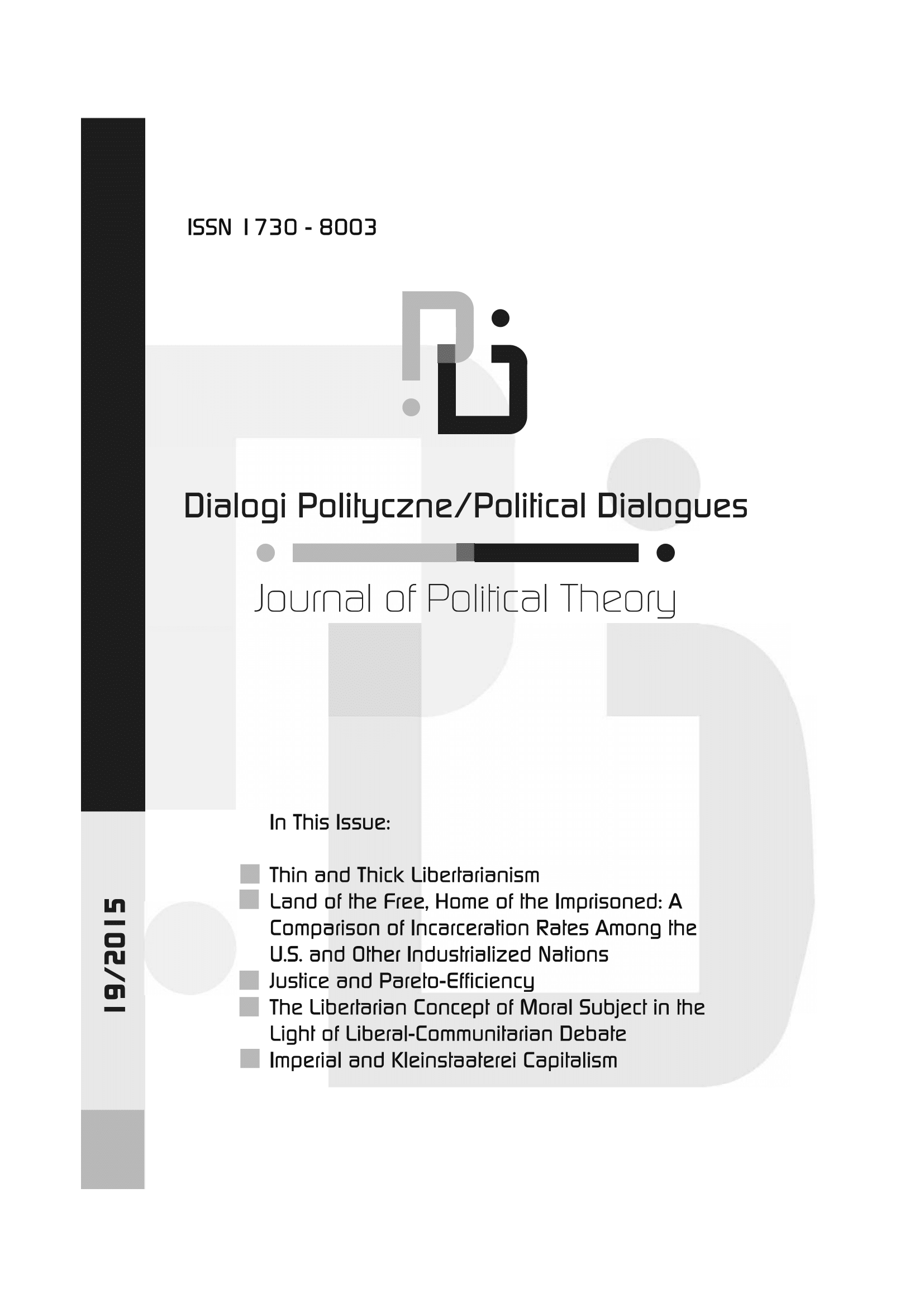Concerning disputes about the definition of politics
DOI:
https://doi.org/10.12775/DP.2015.016Resumen
In the contemporary world the word „politics” is understood in various ways, provoking a great deal of controversy. It can denote one of the most noble forms of human activity, but it may, however, denote a morally suspect activity with the mundane interests of particular individuals or social groups at its basis, arising out of egotism, everyday arrogance or the desire for power. This article implies that the multiplicity of occurring definitions and descriptions of politics can be reduced to two ways of defining it. The difference between them is the reversal of aims and means. The acquisition and maintenance of power, which in the former classical model of the definition of politics, was only a tool to achieve the common good, in the latter model becomes the aim of politics, whereas the common good, which in the former model was the aim of politics, in the latter model it is reduced to a tool for gaining and maintaining power. This article argues that the correct understanding of politics is the classical definition, in which politics is the realisation of the common good of a given political community, and that the concept of politics typical of the views of Niccolo Machiavelli and Max Weber not only does not serve the common good of the whole community, but also omits the truth about the personal nature of humankind, treating people purely as objects and not as people who are self-possessed and selfdetermined.Citas
Bajan K. (ed.) (1976). Podstawy nauk politycznych, Państwowe Wydawnictwo Naukowe, Warszawa.
Bergstraesser A. (1965). Weltpolitik als Wissenschaft. Geschichtliches Bewußtsein und politische Entscheidung, Westdeutscher Verlag, Köln und Opladen.
Brockhaus F.A. (ed.) (1903). Brockhaus Enzyklopädie, Leipzig.
Chmaj M., Żmigrodzki M. (1998). Wprowadzenie do teorii polityki, Wydawnictwo Uniwersytetu Marii Curie-Skłodowskiej, Lublin.
Crick B. (1993). In Defence of Politics, Penguin, Harmondsworth.
Easton D. (1965). A Framework for Political Analysis, Prentice-Hall, Englewood Cliffs.
Gablentz O.H. von der (1965). Einführung in die Politische Wissenschaft, Westdeutscher Verlag, Köln.
Jouvenel B. de (1963). The Pure Theory of Politics, Yale University Press, New Haven.
Kraut R. (2002). Aristotle: Political Philosophy, Oxford University Press, Oxford.
Krąpiec M.A. (1974). Ja – człowiek. Zarys antropologii fi lozofi cznej, Redakcja Wydawnictw KUL, Lublin.
Krąpiec M.A. (1998). O ludzką politykę, Redakcja Wydawnictw KUL, Lublin.
Krockow Ch. Graf von (1976). Reform als politisches Prinzip, Piper, München.
Lasswell H.D. (1936). Politics: Who Gets What, When, How, McGraw-Hill, New York.
Lehmbruch G. (1967), Einführung in die Politikwissenschaft, Kohlhammer Verlag, Stuttgart, Berlin, Köln, Meinz.
Liddell H.G., Scott R. (1940). A Greek-English Lexicon, Clarendon Press, Oxford.
Machiavelli N. (1532). Il Principe, Antonio Blado d’Asola, Florence.
Mulgan R.G. (1977). Aristotle’s Political Theory: An Introduction for Students of Political Theory, Clarendon Press, Oxford.
Opałek K. (1986). Zagadnienia teorii prawa i teorii polityki, Państwowe Wydawnictwo Naukowe, Warszawa.
Opara S. (2005). Pojęcie polityki, in: S. Opara, D. Radziszewska-Szczepaniak, A. Żukowski (eds.), Podstawowe kategorie polityki, Instytut Nauk Politycznych UWM w Olsztynie, Olsztyn.
Ryszka F. (1981). Wstęp do nauki o polityce. Uwagi metodologiczne, Państwowe Wydawnictwo Naukowe, Warszawa Poznań.
Schoofi eld M. (2006). Plato. Political Philosophy, Clarendon Press, Oxford.
Siemieński J. (1922). O polityce, o państwie i obywatelu. Wiadomości conajważniejsze, W.L. Anczyc i Spółka, Kraków.
Szymczak M. (ed.) (1979). Słownik języka polskiego, Państwowe Wydawnictwo Naukowe, Warszawa.
Weber M. (1946). Politics as a vocation, in: H. H. Gerth and Ch. W. Mills (eds.), From Max Weber: Essays in Sociology, Oxford University Press, New York.
Wilkens E. (1975). Politik, in: H. Kunst, R. Herzog, W. Schneemelcher (eds.), Evangelisches Staatslexikon, Kreuz Verlag, Stuttgart und Berlin, pp. 1855–1871.
Wojtyła K. (1969, 19852). Osoba i czyn, Polskie Towarzystwo Teologiczne, Kraków.
Descargas
Publicado
Cómo citar
Número
Sección
Stats
Number of views and downloads: 880
Number of citations: 0



